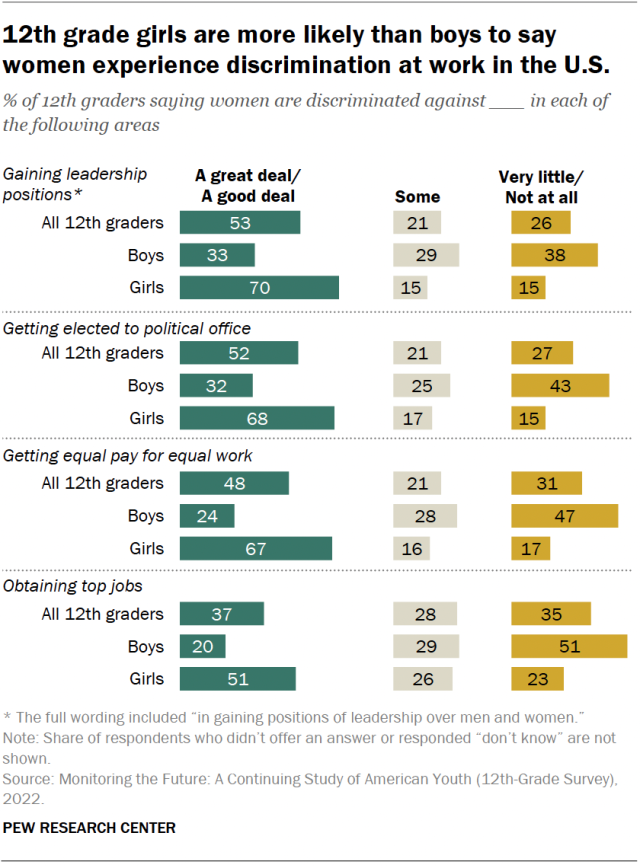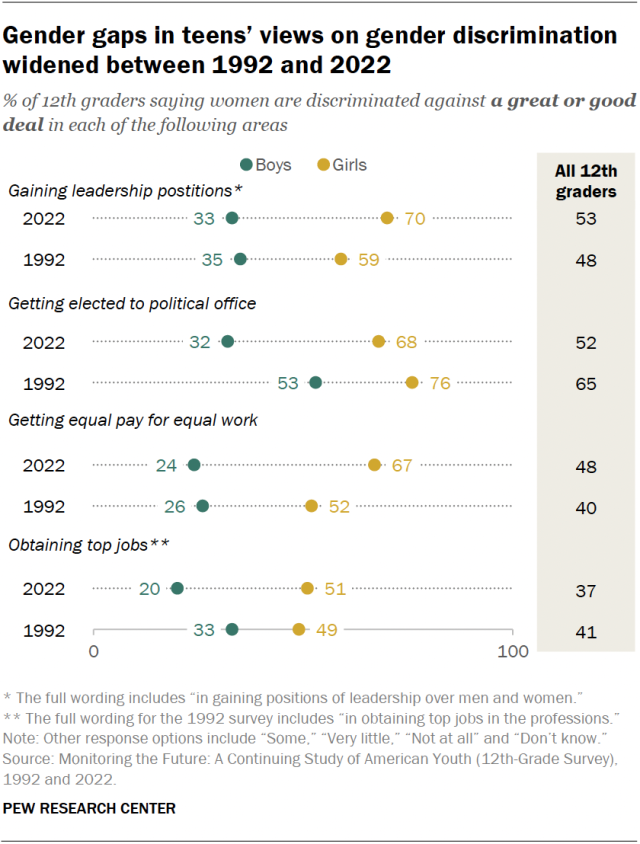
As women have made gains in leadership roles and narrowed the gender wage gap with men, many U.S. teens say women still face discrimination in these areas. And girls are much more likely than boys to say this, according to a Pew Research Center analysis of survey data from the University of Michigan.
Pew Research Center conducted this analysis to explore the views of 12th grade girls and boys on gender discrimination in the workplace and how those views have changed over time.
This analysis uses data from Monitoring the Future: A Continuing Study of American Youth, a project by the University of Michigan’s Institute for Social Research. The Monitoring the Future (MTF) project is designed to explore changes in key values, behaviors and lifestyle orientations of American youth.
This analysis draws from the 1992 and 2022 MTF surveys. The 2022 survey allowed respondents to specify their sex as “Other” or “Prefer not to answer” in addition to “Male” or “Female.” This analysis focuses on respondents who said their sex was male or female in order to compare views among these groups in both 1992 and 2022.

Overall, shares ranging from 48% to 53% of the nation’s 12th graders said in 2022 that women face a great or good deal of discrimination when it comes to:
- Gaining leadership positions
- Getting elected to political office
- Getting equal pay for equal work
Smaller shares said there’s very little or no discrimination against women in these areas.
Views were more mixed on whether women are discriminated against when it comes to getting top jobs. While 37% of 12th graders said women are discriminated against a great or good deal in this area, 28% said they’re discriminated against some, and 35% said this happens very little or not at all.
For each item, girls were at least twice as likely as boys to say women face a lot of discrimination.
These patterns are similar to those we see among U.S. adults in Center surveys. For example, women are more likely than men to say gender discrimination is a major reason why there aren’t more women in top leadership positions in business and politics.
Related: Women and Political Leadership Ahead of the 2024 Election
How have teens’ views on gender discrimination changed over time?
We looked at survey data from 1992 to see how teens’ views have changed over the last three decades. That year, 12th graders were more likely than in 2022 to say women face discrimination in getting elected to political office. They were less likely in 1992 than in 2022 to say women face discrimination in getting equal pay for equal work.

Views didn’t change much when it comes to discrimination in gaining leadership positions or in getting top jobs.
Girls have consistently been more likely than boys to say women face discrimination in each of these areas. Notably, the gender gap has widened over time in every area. For example:
- The gap between girls and boys on whether women are discriminated against in getting equal pay grew from 26 percentage points in 1992 to 43 points in 2022.
- The gap in views on discrimination in obtaining top jobs was 16 points in 1992 and 31 points in 2022.



